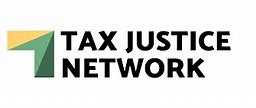Source: Tax Justice Network
 How easy is it to get filthy rich selling arms to anyone who’ll pay? There may be sanctions, there may be laws, but even though he’s the FBI’s most wanted fugitive, a Chinese arms dealer and manufacturer has evaded arrest for two decades. Who could be better to investigate one of the world’s most dangerous men and tell this story than Panama Papers journalists? What does their investigation tell us about sanctions and financial secrecy at a time of rising autocracy and global insecurity?
How easy is it to get filthy rich selling arms to anyone who’ll pay? There may be sanctions, there may be laws, but even though he’s the FBI’s most wanted fugitive, a Chinese arms dealer and manufacturer has evaded arrest for two decades. Who could be better to investigate one of the world’s most dangerous men and tell this story than Panama Papers journalists? What does their investigation tell us about sanctions and financial secrecy at a time of rising autocracy and global insecurity?
- Frederik Obermaier
- Mary Inman
Lawyer and partner at firm Whistleblower Partners
- Erica Hanichak
Deputy director of the FACT Coalition
- Hannah Dewhirst
Head of Campaigns at Positive Money UK
- Professor Prem Sikka
Emeritus Professor of Accounting. Member, UK House of Lords.
The person who actually benefits from the income or capital associated with owning something, and/or on whose behalf a transaction is being conducted. They are often different from legal or nominee owners, who may just be proxies who get no benefit from the asset, whose identity is used to hide the real beneficial owner.
Intermediaries like accountants, lawyers, wealth managers and bankers are not just passive facilitators of global tax abuse. They’re often active, and sometimes aggressive purveyors of these facilities.
A tax haven or secrecy jurisdiction is a place that deliberately provides an escape route for people or entities who live or operate elsewhere. They shield them from whatever taxes, criminal laws, financial regulations, transparency or other constraints they don’t like. Ordinary people whose lives are affected by tax haven laws are not consulted on these laws because they live in other countries: they have no say in how those laws are made, thus undermining their democratic rights.
A tax haven or secrecy jurisdiction is a place that deliberately provides an escape route for people or entities who live or operate elsewhere. They shield them from whatever taxes, criminal laws, financial regulations, transparency or other constraints they don’t like. Ordinary people whose lives are affected by tax haven laws are not consulted on these laws because they live in other countries: they have no say in how those laws are made, thus undermining their democratic rights.
Tax evasion is an illegal – usually criminal – activity, by which a taxpayer escapes tax through deception. Tax avoidance, on the other hand, means getting around (or avoiding) the spirit of the law without actually breaking the law. There is a large grey area between the two poles of avoidance and evasion.

